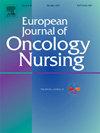妇科癌症患者的症状、痛苦、经济状况、社会支持、资源利用和未满足的护理需求
IF 2.7
3区 医学
Q1 NURSING
引用次数: 0
摘要
目的 本研究探讨了妇科癌症患者未得到满足的护理需求,包括总体需求和子领域需求(即身体和日常生活需求、心理和情感需求、护理和支持需求、医疗系统和信息需求)以及相关因素。方法 在这项横断面研究中,研究人员招募了在台湾北部一家医疗中心接受治疗的妇科癌症患者。收集了有关人口统计学、症状、痛苦、经济、社会支持、资源利用和护理需求的数据。结果这项针对 118 名癌症患者的研究发现,73% 的患者的心理和情感需求未得到满足,其次是 54% 的患者的医疗系统和信息需求未得到满足。最常见的身体症状是失眠、疲劳和疼痛,51.7%的患者有中度或高度痛苦。总体而言,患者获得了大量的社会支持,包括工具性支持和情感支持,主要是通过医疗信息手册(39.0%)、癌症信息网站(28.8%)和康复资源(20.3%)。与未满足护理需求相关的因素包括年龄较小、非卵巢癌、症状(疼痛、疲劳、食欲不振、失眠、呼吸困难、恶心和呕吐)、痛苦、经济状况、社会支持以及癌症信息网站的使用。年轻患者和非卵巢癌患者有更多的护理需求未得到满足。这些需求与严重的症状、痛苦、经济困难、有限的社会支持以及癌症信息网站使用率低有关。有必要通过有针对性的干预措施加强对这一人群的支持。本文章由计算机程序翻译,如有差异,请以英文原文为准。
Symptoms, distress, finances, social support, resource utilization, and unmet care needs of patients with gynecological cancer
Purpose
This study explored the unmet care needs of gynecological cancer patients, including overall and subdomain needs (i.e., physical and daily living needs, psychological and emotional needs, care and support needs, and health-system and information needs), and related factors.
Methods
In this cross-sectional study, gynecological cancer patients treated at a medical center in northern Taiwan were recruited. Data on demographics, symptoms, distress, finances, social support, resource utilization, and care needs were collected. Spearman's correlation and the Mann–Whitney U test were used for analysis.
Results
This study of 118 cancer patients found that 73% had unmet psychological and emotional needs, followed by 54% with unmet health system and information needs. The most common physical symptoms were insomnia, fatigue, and pain, with 51.7% experiencing moderate or high levels of distress. Overall, the patients received considerable social support, both instrumental and emotional, primarily through medical information booklets (39.0%), cancer information websites (28.8%), and rehabilitative resources (20.3%). Factors associated with unmet care needs included younger age, non-ovarian cancer, symptoms (pain, fatigue, appetite loss, insomnia, dyspnea, nausea, and vomiting), distress, finances, social support, and the use of cancer information websites.
Conclusion
Psychological and emotional unmet needs is prevalent among patients with gynecological cancer; psychological support is crucial. Younger patients and those with non-ovarian cancer had more unmet care needs. These needs are linked to severe symptoms, distress, financial difficulties, limited social support, and low use of cancer information websites. Enhancing support for this population through targeted interventions is necessary.
求助全文
通过发布文献求助,成功后即可免费获取论文全文。
去求助
来源期刊
CiteScore
4.40
自引率
3.60%
发文量
109
审稿时长
57 days
期刊介绍:
The European Journal of Oncology Nursing is an international journal which publishes research of direct relevance to patient care, nurse education, management and policy development. EJON is proud to be the official journal of the European Oncology Nursing Society.
The journal publishes the following types of papers:
• Original research articles
• Review articles

 求助内容:
求助内容: 应助结果提醒方式:
应助结果提醒方式:


